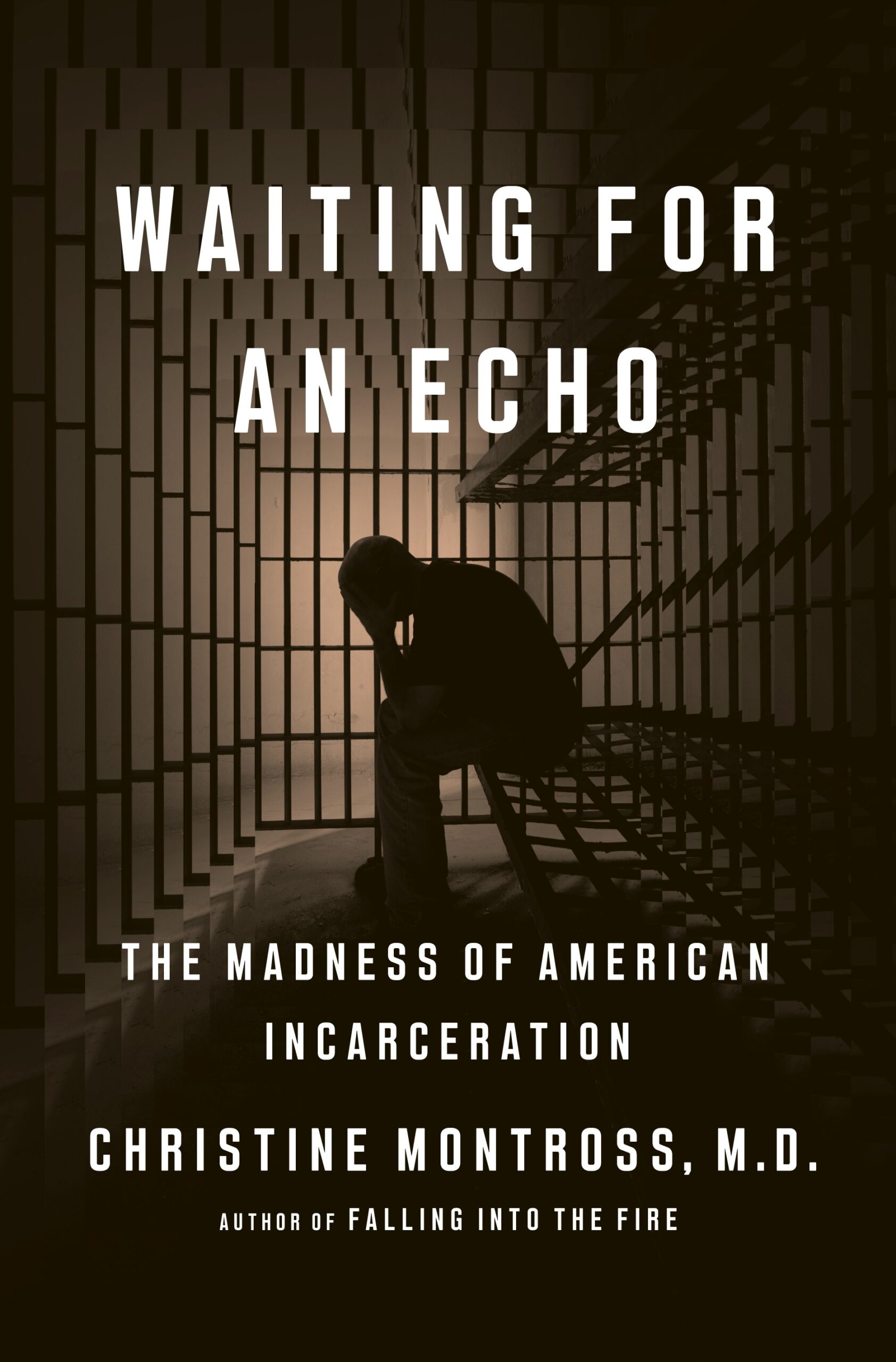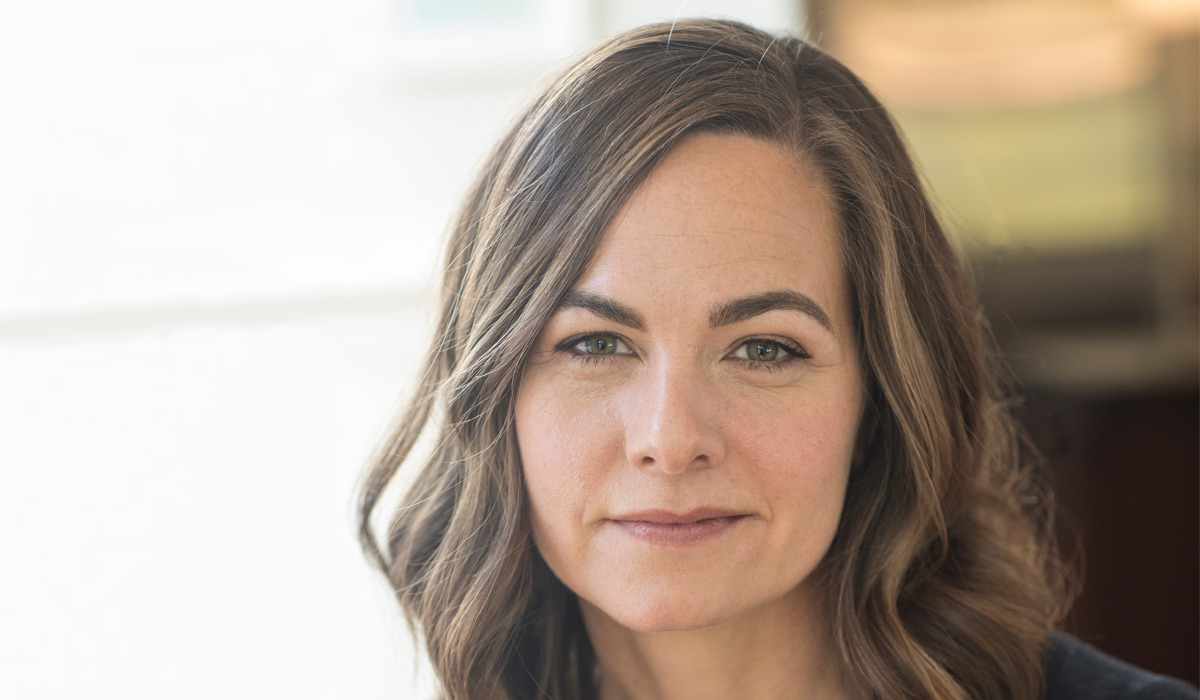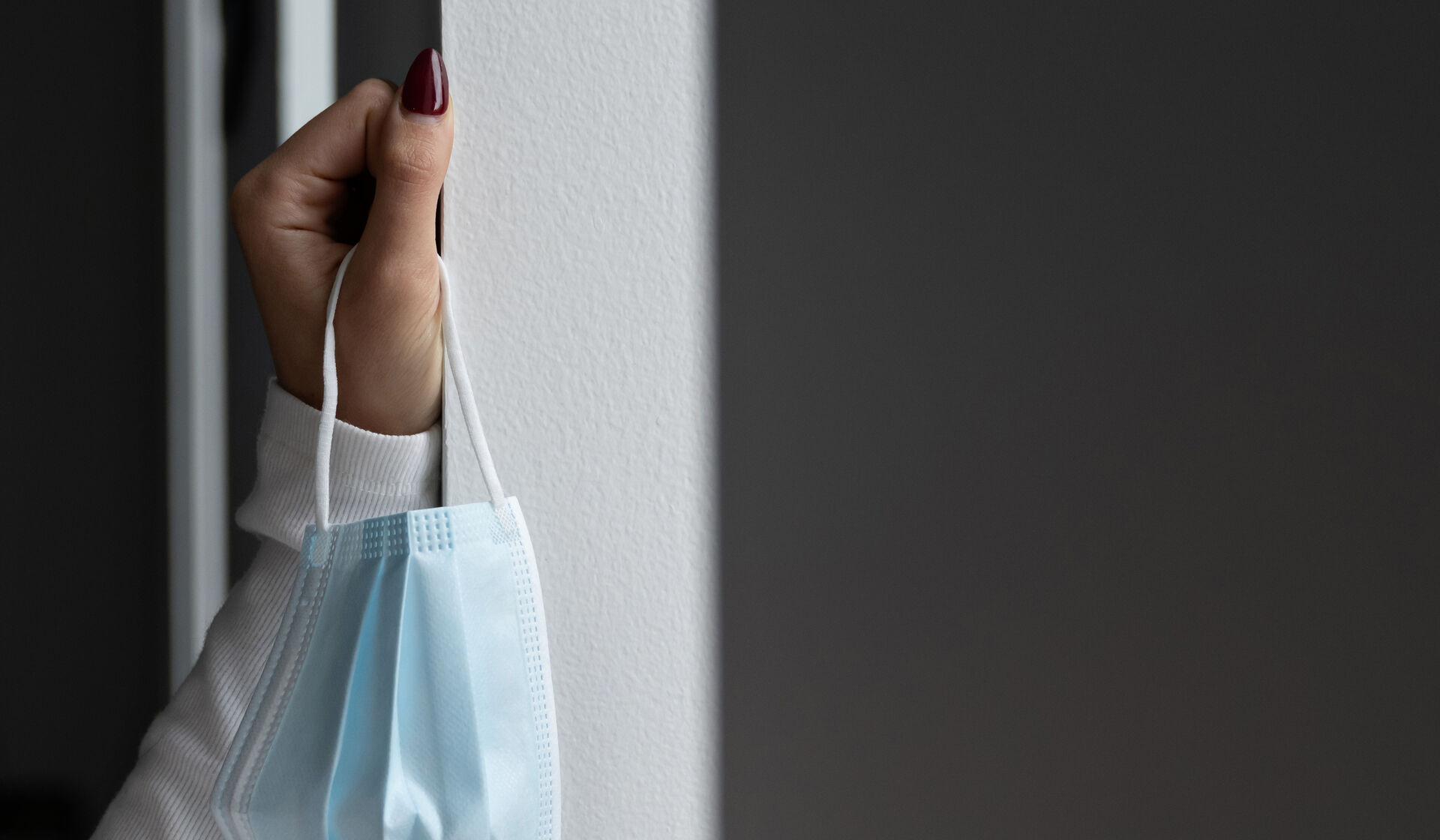While investigating America’s prisons, Christine Montross ’96, MFA’98, witnessed a teenage boy in a juvenile detention center standing on a toilet talking to the ceiling. “I assumed that he was mentally ill,” said Montross. “And then I walked down the hall and saw another boy doing the exact same thing.”
From experience, she knew it was unlikely that two boys would display identical symptoms of mental illness. A correctional officer then explained that the boys were communicating through a vent, evidence of what Montross calls “the human drive for connection.” They were, in the words of the novelist Richard Wright, “waiting for an echo.” And that became the title of Montross’s third book.
“Waiting for an Echo: The Madness of Mass Incarceration” (Penguin Press, 2020), makes the case that too many seriously mentally ill people end up in prison because the mental health system is ill-equipped to treat them. An associate professor of psychiatry and human behavior at Brown University’s Warren Alpert Medical School, Montross also argues that prison practices — especially solitary confinement — can exacerbate, or even cause, mental illness.
But its broader argument is a critique of the punitive nature of the U.S. prison system.
“We say we want safety and justice, but we really prioritize suffering and vengeance,” Montross said from her home in Providence, R.I.
Montross was inspired to write “Waiting for an Echo” when she saw how many of her psychiatric patients at Providence’s Butler Hospital shuttled between hospitals and prisons. Laws initially “based in ideals of autonomy and patients’ rights have, in fact, disenfranchised mentally ill people and stripped resources from their treatment,” Montross explained.

As a result, prisons have picked up the slack, even when those arrested and convicted arguably lack criminal intent. When the mentally ill act out in prison, they often end up being isolated. “Solitary confinement damages people psychologically, sometimes irreparably so,” she said. “And then those damaged people are released back into the community.”
To investigate alternatives to the harsh U.S. prison regime, Montross visited Norway’s Halden Prison, which emphasizes rehabilitation. She found inmates learning new skills and enjoying significant freedoms, including access to kitchen knives as they prepared their own meals. The prison’s aim was to assess, and address, the factors leading an individual to crime. Loss of freedom was deemed punishment enough.
For the U.S. to embrace similar reforms, Montross said, “we have to let go of the idea that we punish people and mistreat them in prison — because those practices are antithetical to the goals of safer and more just communities.”
Montross’ path to prison reform advocacy began at U-M, where she said she wrote poems that embodied “creative, evocative, romantic ideas about how the mind can derail.” Teaching high school English in San Francisco, where many of her students had extremely serious psychosocial issues, shattered those romantic notions but led to a career in psychiatry.
Even as she plunged into medicine, Montross turned to prose to process her experiences. While at Brown, she produced “Body of Work” (Penguin Press, 2007), a meditation on dissection and mortality. While working at Butler and seeing disturbing cases, like a woman who kept swallowing objects, she wrote “Falling Into the Fire” (Penguin Books, 2014), about the limits of psychiatric knowledge. In 2015, she was named a Guggenheim Fellow.
In each of her books, Montross said that she asks readers to look closely at things from which we might tend to avert our gaze.
“We have seen through our history that major social change has been possible when people are able to see elements of themselves in others who are suffering,” said Montross, who is married to the playwright Deborah Salem Smith, MFA’99. “When we begin to understand that we are not different from the people who are suffering, it galvanizes us to behave in ways that protect each other.”
Julia M. Klein, a cultural reporter and critic in Philadelphia, has written for The New York Times, The Wall Street Journal, Mother Jones, Slate, and other publications.





